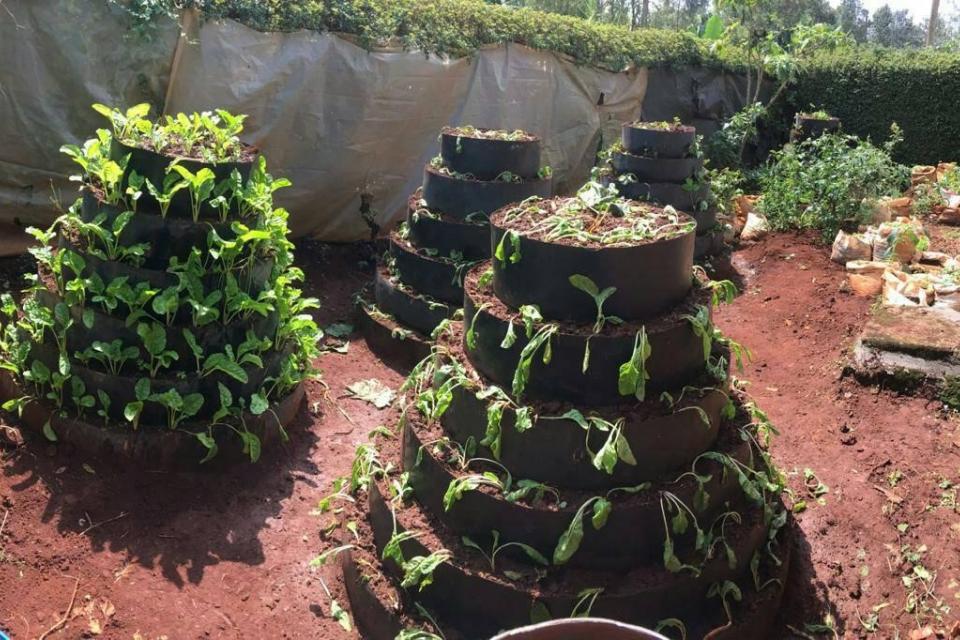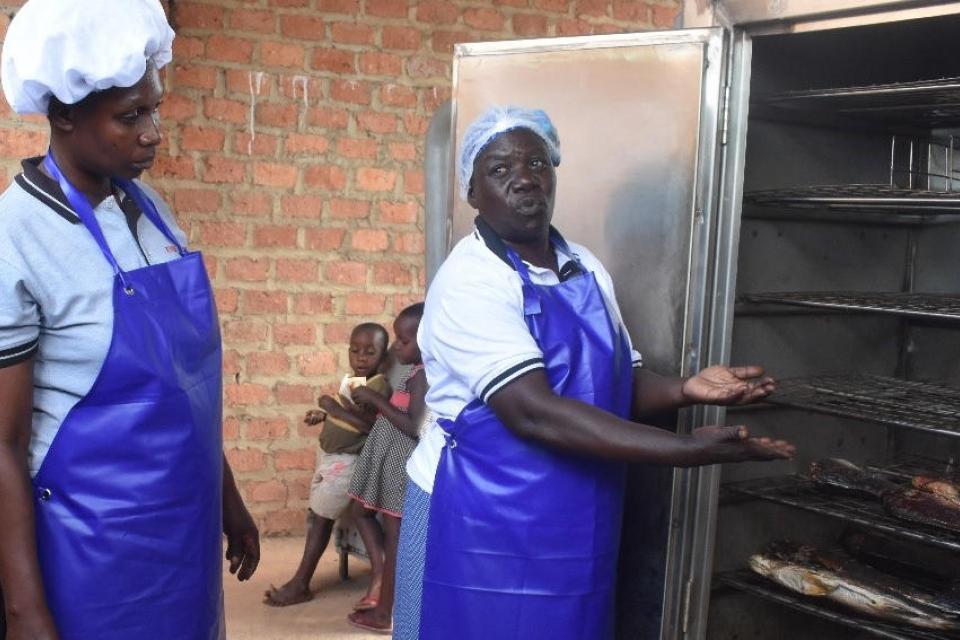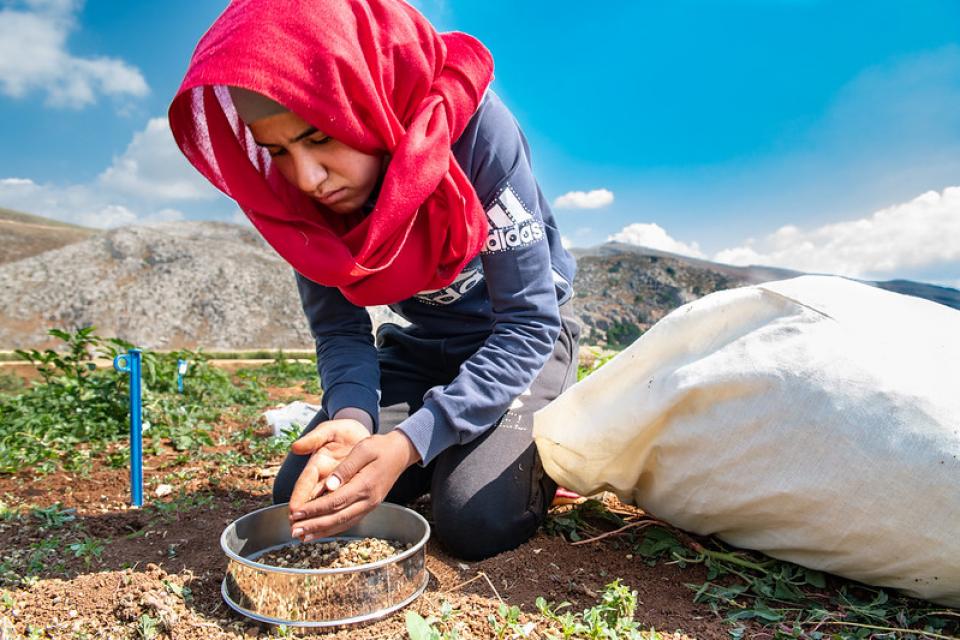Pods to prosperity: Empowering cocoa farmers’ circular business
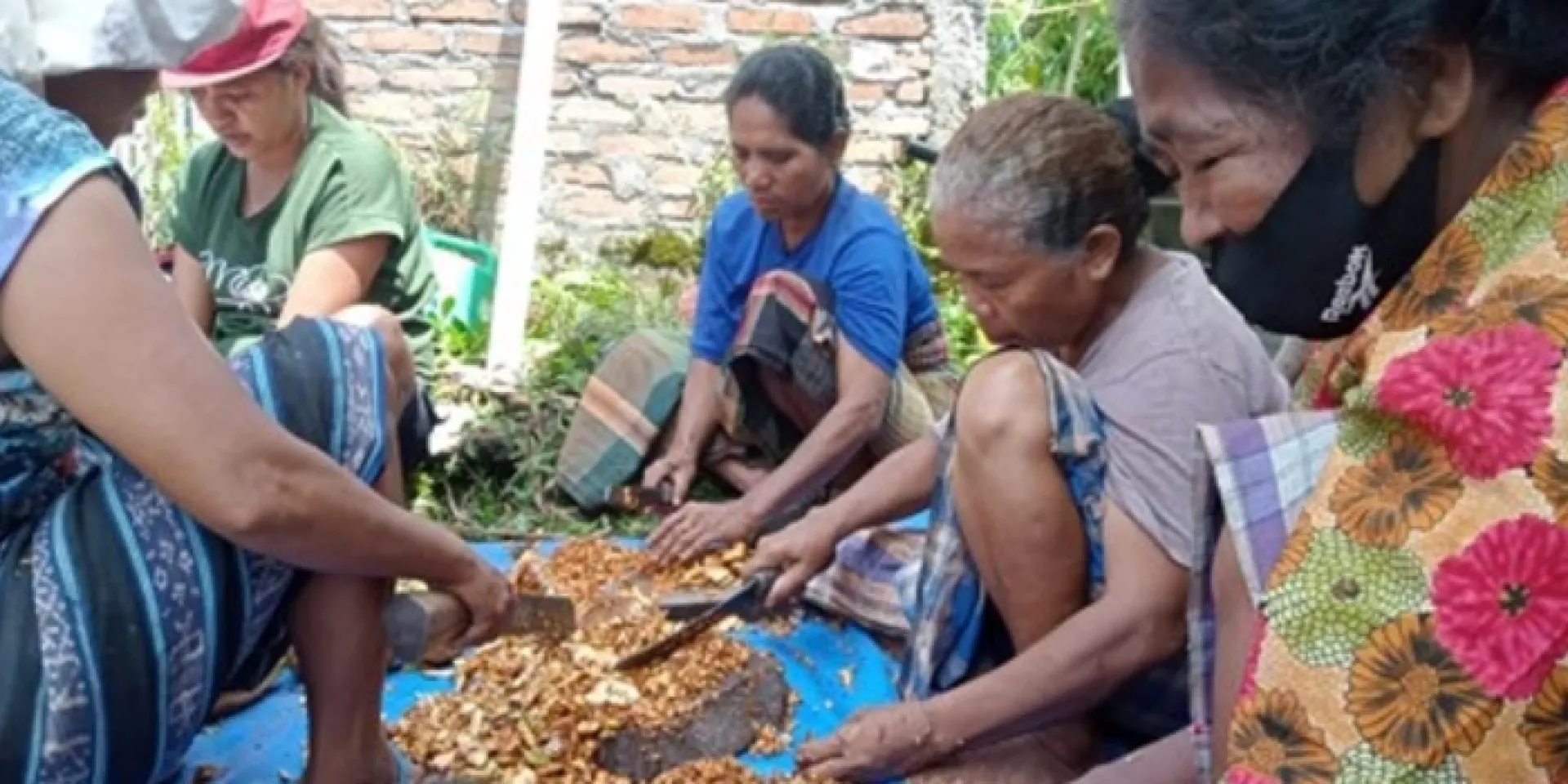 Photo: Clarissa Idat.
Photo: Clarissa Idat.
In late 2023, the CGIAR GENDER Impact Platform ran a second series of training modules for science communicators on how to develop and pitch stories on agricultural technologies that work for women.
The story below was produced by Clarrisa Idat and published by agrilinks.org as a result of this training. Enjoy!
A cocoa farming cooperative in Ende, Indonesia, is revolutionizing women’s role in farming by offering women-only trainings in how to create fertilizer from “waste” cocoa pods, which they can then use to produce and sell organic vegetables. By creating a useful product from waste, women in Ende are now contributing to a circular economy.
Traditionally, women in Ende have been expected to stay home and handle household chores like cleaning, cooking and looking after the children. It is rare for women to take part in activities that generate money, unless they are widowed.
On the other hand, men are considered as the “face” of the house, and it is men’s responsibility to join social gatherings. These long-standing norms have kept women from getting training opportunities, which are vital for their economic independence.
The journey to women’s empowerment began with a simple yet powerful question: What are female farmers’ ultimate dreams, what is their current situation and how can they achieve their dreams? This introspection is the first step toward realizing the aspirations of countless women in this region.
SIKAP, a cocoa farmers’ cooperative in Ende, Indonesia, started the women-only trainings, which were tailored according to the women’s needs and wants. The training was supported by the Rainforest Alliance’s Transforming the Cocoa Sector in Indonesia through Value Addition for Smallholders (TRACTIONS) program.
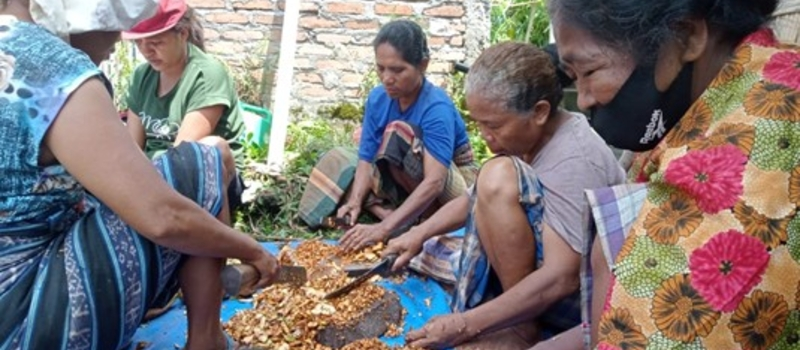
The women’s group chops cocoa pods before fermenting the pods into fertilizer.
How it started
Meet Mama Ludvina, one of the female farmers of Ende. Until now, she never was or could be the main character in the farming life in her house. While she was expected to help at the farm, she received the training on good agricultural practices through her husband. However, independently, she was planting vegetables to feed her family on the farm. Mama Ludvina said, “At least my husband allows me to plant some vegetables on the farm and in the yard of the house.”
Mama Ludvina likes planting vegetables. One of her dreams is to own a vegetable farm; however, she did not have the capital to get the fertilizer, as growing vegetables needs some initial investment. She also did not know where to sell her vegetables, once grown. Occasionally, there were people from the cities who bought vegetables from her village, but most of the time, the price was too low.
Mama Ludvina’s dream is to be the main character, earning her own money from her own vegetable farm. This dream belongs not only to Mama Ludvina, but it also belongs to her peers.
The training
To help Mama Ludvina, and others like her, to achieve their dreams, SIKAP Cooperative conducted training on how to repurpose waste cocoa pods into fertilizer. Their main goal is to allow Mama Ludvina and her farmers group to have low reliance on industrially produced, costly fertilizer.
The training was made simple. They began by showing farmers how crucial it is to chop the pod into small pieces and let it ferment with special microbes. After that, they put the pods in boxes or burlap sacks for a few weeks before the farmers could use it on their farms. Additionally, they had more sessions on how to market the vegetable products, figure out profits and losses, and get ready for the next round of planting vegetables. This equipped Mama Ludvina to start her own vegetable business.
After participating in SIKAP Cooperative’s training, Mama Ludvina started her cocoa pod fertilizer production to use on her vegetable garden. Mama Ludvina leads the fertilizer production for 17 other women in her farmers group.
Mama Ludvina said, “In the past, we (women) were told that we are less than men because we (women) are unable to generate income, but now we can show that we are also able to generate income. I can now earn up to IDR [Indonesian rupiah] 1 million per harvest from my organic vegetable farms.”
Eva Virayani is a gender expert for TRACTIONS, representing the Rainforest Alliance. Eva affirms that the program aims to empower the female farmers by opening their access to training they wanted but previously could not access. She also stated that the important step was to dig deeper into what the female farmers wanted.
Eva adds, “In a lot of times, the women feel so helpless in their situation that they do not even dare to dream. That’s why it is important to rekindle their dream.” Eva said that the changes are expected to happen at four levels: individual, household, community and, ultimately, policy. This project primarily targeted individual transformation. But, surprisingly, by the third year of implementation, the project also observed positive changes of increased entrepreneurship behaviour at the community level.
“Other women farmers in the group learned a lot from Mama Ludvina’s example within just one year, and do what she did. These women are so inspired by her, they copy what she did themselves,” explains Eva.
The TRACTIONS team also helped Mama Ludvina and her peers to know some people from the cities who will buy their vegetables. These buyers gave Mama Ludvina a better price than before, as the vegetables are produced organically without pesticides.
Eva pointed out that the key factor that enabled these positive changes was when the women actively participated and were motivated to learn on their own. The interventions created a supportive environment for the women, helping them freely share what they wanted and make their dreams come true.
--
Disclaimer: This story has not been reviewed by the CGIAR GENDER Impact Platform; the views expressed here are those of the author(s) and do not necessarily reflect the views of the Platform.
